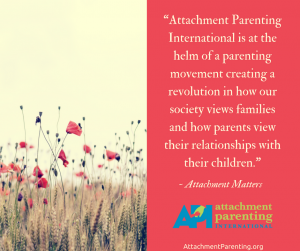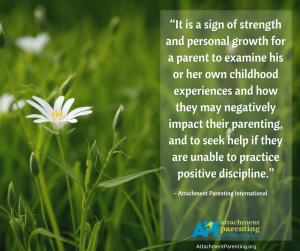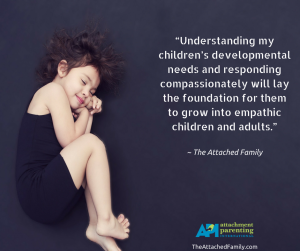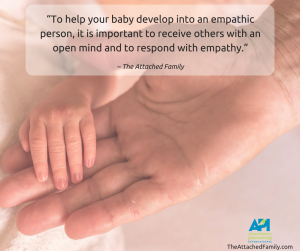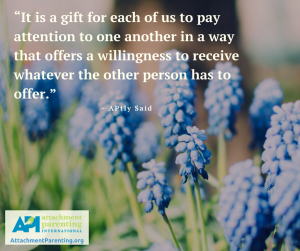Category: Teaching Peace
A sign of strength
Laying the foundation for empathy
To help your baby develop empathy
Mothers’ thoughtful expressions: What is the best parenting advice you would offer another mom?
 The experience of being a mom can be challenging, exhausting, rewarding, and inspirational. There are plenty of trained experts and professionals who lend their guidance on ways to navigate through the complex web of motherhood, but oftentimes, the most grounded support comes from those who have been down in the trenches — so to speak: everyday mothers.
The experience of being a mom can be challenging, exhausting, rewarding, and inspirational. There are plenty of trained experts and professionals who lend their guidance on ways to navigate through the complex web of motherhood, but oftentimes, the most grounded support comes from those who have been down in the trenches — so to speak: everyday mothers.
Today, we bring you words of advice from mothers who shared with us the wisdom and insight they acquired along the way, on their motherhood path.
What is the best parenting advice you would offer another mom?
Kassandra Brown: “My best parenting advice is to allow your perspective to broaden, your heart to soften, and your mind to notice how lucky you are to have exactly the children you have. What we believe, we perceive. By believing it, you will see evidence more and more often that proves how true it is that you are lucky to have your children.”
Lisa Feiertag: “The advice that I would share with other moms is how important it is to remain flexible and to know that everything will change even when you think it is all static. Growth naturally causes things to shift, and it is a lot easier if you are moving in that flow instead of resisting it. Also, try to not take anything personally or to personalize your child’s actions and emotions. When you find yourself feeling upset look into why that is. What is being triggered internally? Parenting is an opportunity to heal all our unmet childhood wounds, which is one of the reasons why it is not an easy job.”
Megan Bell: “Let go of ‘should’ and truly connect with and listen to your children. They are our best teachers. Offer them what they need when they need it, and know they won’t need it forever.”
Rochelle Kipnis: “Our children grow up so fast, so cherish every moment you get with them. Make memories and know that they grow up too quickly. Hold on to the moments and take it slow. Enjoy every day that you’re blessed to be here on earth with your children.”
Effie Morchi: “Above all, listen to your heart and trust your instincts; they are there for a key reason. When you are faced with a challenging moment, take a deep breath and think, ‘that too shall pass…’ and when you are faced with a blissful moment, take a deep breath, and let it wash over you — it will serve as nourishment for the road ahead.”
Jillian Amodio: “Honestly, there’s a lot of advice floating around. Five different people will give you 5 different answers. The best advice I can give you is truly none at all. Just follow your heart, it will never lead you wrong. Mamas, you are wiser than you will ever know, more important than you will ever realize, and cherished beyond measure. Hug those little ones and love yourself, because even when you don’t feel like it, I’ll bet that you are doing an AMAZING job.”
Kelly Shealer: “My advice to other moms is to trust your instincts. Trust what feels right for you and your children. You know your child best, so you can give them a unique gife that make them really happy.”
Inga Bohnekamp: “It is a lot about connection and trust. Find ways to over and over again connect with your child — and yourself. Try to see her with fresh, curious eyes every day and try not to make too many preconceived assumptions. She will continue to surprise, to amaze, and to challenge you in her very own unique ways as she grows up and faces the challenges of the world she lives in. Connect with yourself, with your intuition, with your very own inner wisdom. Most of the answers you will ever need are already inside of you, somewhere — you might just need to uncover them and then listen to them, which can be scary. And while, of course, trusted sources of support are always important — repeat after me: We cannot do it all by ourselves! — always remember that every child, every parent, every situation, and every relationship is different and changes from moment to moment, which makes it highly unlikely for a ‘one size fits all’ approach to actually be a good fit.”
Katelynne Eid: “Trust your gut. With each little one, I’ve learned to trust myself even more. There are endless information and opinions out there, but nothing beats a mother’s intuition. Even if you don’t think you have it, I promise you do!”
Shoshana Hayman: “Although modern society has devalued the role of mothers, know that your role as a mother is of paramount value in the world. No one can be for your children what you are to them — their primary attachment figure, which gives the optimal context for healthy human development. Teach them lovingly, both your boys and your girls, that the most important roles they will fulfill one day will be to parent their own children. Mothers need to be confident in believing that nurturing their children, throughout the years that they are growing up, helps shape a healthy and peaceful society more than any daycare, school, or educational program ever can.”
————
A Mother’s love is a gift that gives forever and her legacy is life
In gratitude, consider a tribute to a Mother in your life while helping a mother in need of support at the same time.
It’s a gift that that keeps on giving because you help mothers receive much needed information and support.
This is the heart of API.
We invite you to share a gift of love that gives on in her honor.
Happy Mother’s Day from Attachment Parenting International
————
Core beliefs and parenting
Editor’s note: Today, April 30, is SpankOut Day — an annual observance founded by the Center for Effective Discipline, working to eliminate physical punishment of children and to promote nonviolent discipline. This can be a different change in perspective for parents accustomed to spanking their children. It can be tempting to shift from hitting to other shame-based forms of punitive discipline. This post explores the beliefs and thoughts behind motives for human behavior and subsequent discipline of our children:
 Shame was a mainstay of parenting in past generations. Many of us parents can remember feeling shame, probably often, while growing up — along with threats, intimidation, and other forms of coercion. Although parenting trends have made great strides to align with what research shows to be the healthy way to discipline our children, remnants of shame-based parenting still remain.
Shame was a mainstay of parenting in past generations. Many of us parents can remember feeling shame, probably often, while growing up — along with threats, intimidation, and other forms of coercion. Although parenting trends have made great strides to align with what research shows to be the healthy way to discipline our children, remnants of shame-based parenting still remain.
Shame-based parenting behaviors may be subtle, hidden in seemingly innocent messages meant to encourage cooperation from our children, like “You should know better than that,” “Nice girls don’t do that,” “Good boys do this,” or “You already had enough; you shouldn’t want more.” But if you were to turn these phrases around, how would you feel about yourself?
These phrases, while not abrasive, are still implying that a child is having thoughts that are “wrong” or “bad,” when actually, anyone can have whatever thoughts they desire — what we as parents really want is for children to be able to discern which behavior would be more aligned with the values we hope to be passing down to them.
Attachment Parenting International‘s Eight Principles of Parenting guide parents in setting appropriate limits on behavior while promoting a secure parent-child attachment, empathy and emotional literacy, and peaceful conflict resolution.
It’s important for parents to continue working toward knowing themselves better and how this affects their parenting and relationships with their children. Especially for those who were raised themselves with a shame-based parenting approach, becoming stagnant in personal growth can cause regression back to the parenting behaviors they were raised with.
Without intentional parenting, the shame-based parenting we experienced as children will be reflected in how we relate to and discipline our children, even if only through words we intended to be gentle reminders or even through expectations we have in mind of how our children are “supposed” to be behaving.
While shame, as a normal emotion, is felt from time to time by everyone — being the result of conflicting interactions within a social group — it generally doesn’t have long-lasting effects on a child’s self-worth as long as the child is able to lean on a supportive, unconditionally loving parent to help him process his feelings.
However, there is a distinct difference between a relatively fleeting feeling of shame from unconnected incidences and the long-standing, pervasive feeling of shame at a child’s core that is the result of shame-based parenting. Shame-based parenting instills a pattern of thinking in the child that she is unworthy and, inflicted by the parent, there is no unconditionally loving support person to help the child process her emotions and be able to see herself as separate from the ongoing messages of shame.
Many parents who grew up in a shame-based home may worry that they are inadvertently instilling shame in their own children, despite their best efforts to not do so. It’s understandable where this concern comes from — a parent who is conscious of the emotional wounds in his or her life is also conscious to not want to pass down this family legacy.
Examining Shame-Based Core Beliefs
 Healing from a shame-based view of oneself is best done with a professional counselor, but there are various ways that adults can help the healing process along. One way is to examine their core beliefs.
Healing from a shame-based view of oneself is best done with a professional counselor, but there are various ways that adults can help the healing process along. One way is to examine their core beliefs.
Core beliefs are the messages our brain tells us about our self-worth. Core beliefs “color” how we think about ourselves, how we think about others, and even how we react to situations in our lives. Think about core beliefs as the color of who you are:
Negative Core Beliefs —
I am unlovable
I am not good enough
I am a bad person
I am stupid
I am ugly
I am abnormal
I am boring
I am worthless
I don’t deserve love or good things in my life
Positive Core Beliefs —
I am lovable!
I am good enough
I am a good person
I am smart
I am beautiful
I am extraordinary
I am very interesting to be around
I have a lot of worth
I deserve to be treated with respect, dignity, and love
When you have the same situation as someone with the other color of core beliefs, you actually both look at the same situation in different ways. For example, let’s say you meet a mother at the park and think about asking her to go with you to your local API Support Group.
Negative Core Belief: I’m boring, I’m not good enough, I’m worthless.
- Thought: “Why would she ever go to the meeting with me?”
- Behavior: You don’t ask the mother to go with you.
Positive Core Belief: I’m very interesting to be around, I’m good enough, I have a lot of worth.
- Thought: “We might have fun together.”
- Behavior: You ask the mother to go with you.
The behavior that results from your core belief reinforces that core belief. If you think the other mother wouldn’t want to be friends with you, and then you don’t ask her to come with you to the group meeting, you will then feel even more like you’re not worthy of having friends.
Of course, there is a possibility that if you do ask the other person to go to the group meeting with you, that she will say no or she may say yes but you find that you two don’t click. This may stir up more core beliefs, but it can also empower you to ask the next person you meet that might be a better fit.
How Core Beliefs Affect Parenting
 Likewise, when you encounter the same parenting scenario as someone with the other color of core beliefs, you both look at and react to the same scenario in different ways. However, there is a complicating factor in the case of parenting. It’s all too easy to unconsciously transfer your core beliefs about yourself to your child. People who grew up in shame-based homes, who haven’t addressed their emotional trauma may unknowingly project what they see as the “bad” qualities of themselves on others. This natural act of self-protection is the emotional brain’s way of avoiding the original, unaddressed issue — that the parent himself is “bad.” It’s much easier to continue not feeling the pain of this “realization” by passing the blame onto someone else.
Likewise, when you encounter the same parenting scenario as someone with the other color of core beliefs, you both look at and react to the same scenario in different ways. However, there is a complicating factor in the case of parenting. It’s all too easy to unconsciously transfer your core beliefs about yourself to your child. People who grew up in shame-based homes, who haven’t addressed their emotional trauma may unknowingly project what they see as the “bad” qualities of themselves on others. This natural act of self-protection is the emotional brain’s way of avoiding the original, unaddressed issue — that the parent himself is “bad.” It’s much easier to continue not feeling the pain of this “realization” by passing the blame onto someone else.
For example, let’s say your 6-month-old baby just started waking up at night several times after previously sleeping through at least 6 hours.
Negative Core Belief: I am not confident in my parenting ability.
- Transferred Core Belief: My baby is manipulating me.
- Thought: “My baby should be sleeping through the night.”
- Behavior: You try cry-it-out with your baby. Your baby may be very distressed, and you may react with anger or anxiety, reinforcing the core belief.
Positive Core Belief: I’m a good mother and a good problem-solver.
- Transferred Core Belief: My baby must be waking at night more because of a developmental need.
- Thought: “I need to learn about why my baby is waking more at night and what to do about that.”
- Behavior: You learn that your baby may be going through a growth spurt, teething, or otherwise needs your comfort at night and adjust your expectations to continue providing a sensitive response.
Let’s look at another example: No matter how many times you have talked to your 2-year-old toddler about “gentle hands,” she still hits when she’s upset.
Negative Core Belief: I am not confident in my parenting ability.
- Transferred Core Belief: My toddler isn’t learning from this discipline approach.
- Thought: “I need to be more forceful to teach my toddler to not hit.”
- Behavior: You yell at or hit her when she hits. She may feel angry and act-out by hitting more, or she may be confused and hurt. You may then react with anger or guilt, reinforcing the core belief.
Positive Core Belief: I’m a good mother and a good problem-solver.
- Transferred Core Belief: My toddler’s hitting frustrates me, but there must be a reason for her behavior.
- Thought: “I need to learn more about what to expect developmentally at this age and what to do about the hitting.”
- Behavior: You learn that your toddler is acting very age-appropriately and is still developing her impulse control. The best way to address this is to continue telling and modeling to her to not hit, while teaching her other ways to express her anger.
With this final example, let’s look at a teenager who has side-swiped a mailbox with his car, breaking a headlight and scratching the paint.
Negative Core Belief: I am not confident in my parenting ability.
- Transferred Core Belief: Teenagers are careless, rebellious, and irresponsible.
- Thought: “He doesn’t care about anything. He thinks he can get away with anything.”
- Behavior: You take away his car keys, demand that he pay for the damages, and punish him by taking away privileges. He may act-out. You may then react with anger or guilt, reinforcing the core belief.
Positive Core Belief: I’m a good mother and a good problem-solver.
- Transferred Core Belief: Teenagers sometimes make mistakes, as we all do.
- Thought: “He needs to learn from this situation, but he also needs understanding and help with problem-solving of how to address it.”
- Behavior: You talk with him about what happened and his feelings, and help him problem-solve what his next steps are.
Whether you have negative or positive core beliefs, the thoughts that come from these will transmit to how you feel toward your child and her behavior. Negative core beliefs are linked with shame-based responses.
Turning Negatives Into Positives
 If your core beliefs tend to fall in the negative list, remember that each negative has a positive option. If you encounter a situation where you don’t feel worthy, you need to get into a practice of positive self-talk and coming up with positive options other than the negative default that may naturally arise in your mind.
If your core beliefs tend to fall in the negative list, remember that each negative has a positive option. If you encounter a situation where you don’t feel worthy, you need to get into a practice of positive self-talk and coming up with positive options other than the negative default that may naturally arise in your mind.
Here are 3 ideas of how to begin turning your negative core beliefs into positives:
- Tell yourself that you are awesome! Start repeating positive statements, like “I am smart” or “I am a good mother (or father),” to yourself many times a day. You can try writing them on sticky notes and stick them to your bathroom mirror, your desk, or other places around your house, vehicle, or work space to give you reminders throughout the day.
- Turn the negative into a positive. When you begin thinking negatively, take a deep breath and intentionally turn the thought around to a positive. If you make a mistake, when the thought “I am so stupid” or “I am such a bad mother (or father)” comes to mind, tell yourself: “No, I am smart. Everyone makes mistakes, and I can learn from this.”
- Join an API Support Group. It is incredibly empowering to be surrounded by like-minded, supportive parents who are all working toward the same parenting goals as you. The opportunity to ask questions to a nonjudgmental group and to receive ideas that are in line with your values and that can apply to your parenting situation is invaluable. There is great positive power in a parenting support group when they can be both a sounding board and a source of validation, while encouraging your personal growth.
- Respond to yourself in the way you would ideally want to sensitively respond to your child in the same situation. Since negative core beliefs are often grounded in thought patterns from our childhood, such as from shame-based parenting or another emotional trauma, it’s not such a stretch to address the “child you” in your mind — the emotional part of you that is trying to protect itself with the negative core beliefs. That “child you” has to heal for the “adult you” to be able to move forward — toward a healthy self-worth and more confident, positive parenting.
It is a gift to receive one another
Get outside and get into nature
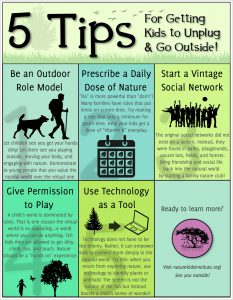 Tomorrow, April 22, we celebrate Earth Day. As you renew your commitment to care for our planet, keep in mind that the absolutely greatest contribution we can make toward Earth’s stewardship is to raise children who care.
Tomorrow, April 22, we celebrate Earth Day. As you renew your commitment to care for our planet, keep in mind that the absolutely greatest contribution we can make toward Earth’s stewardship is to raise children who care.
Children raised in a caring family environments have greater capacity for empathy not only toward themselves and others but their communities and world. Children tend to care more deeply about what their parents hold and express as family values. To nurture their interest in nature, children need a parent or another caring adult to take them outdoors and share in their curiosity and wonder.
It’s not enough to say you care for the planet — you got to live it and model it to your children.
So, get the whole family out into nature. Plant a tree. Pick up litter in the park. Construct bee, bat, and bird houses. Participate in citizen scientist pollinator or toad counts. Watch nature documentaries. Visit your local natural history museum. Go camping. Turn over a log to discover insects underneath. Go to the zoo. Watch the birds and squirrels. Take a walk. Go cloud-watching. Pick wildflowers. Wade in a creek.
Need more inspiration? Children who get unstructured playtime outside are healthier, earn better grades, and receive other benefits — learn more in this video from the Nature Kids Institute:
“Why Kids Need Nature” from Kenny Ballentine on Vimeo.

